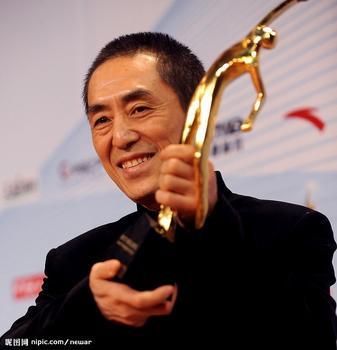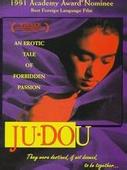Eastern Fever

In the late 1980s and early 1990s, Zhang Yimou was a dominant force in the domestic and international film scene. His first 11 features picked up more than 80 top-level awards, roughly 60 of which were awarded by foreign juries and filmgoers. Red Sorghum earned him 19 awards, Judou won six accolades, Raise the Red Lantern received 14, The Story of Qiu Ju won eight, Shanghai Triad won seven, Not One Less won 12, and The Road Home won nine. It’s a tally matched by very few directors from any country, let alone from China.
When Zhang sought out Mo Yan to talk about shooting a film adaptation of his novel Red Sorghum, Zhang was well known domestically as an expert cinematographer with impressive representative works, such as Yellow Earth. As a director, though, Zhang would be in the deep end.
Zhang hit his first directorial hurdle before filming even got underway. Mo’s novel recounts endless fields of red sorghum covering the countryside around his hometown in Gaomi County of Shandong Province. But the fields had long since disappeared. To reproduce the scene, the Red Sorghum production crew planted about 10 hectares of red sorghum in Gaomi in the spring of 1987. Their efforts were rewarded with both a healthy crop and sizable box office receipts at home and abroad.
The release of Red Sorghum in China was a boxoffice phenomenon. At a time when ticket prices were the equivalent of only a few pennies, demand for seats to see Red Sorghum saw cinemas charging upwards of RMB 10. And the crowds were willing to pay. The film accurately portrayed life in the Chinese countryside, and hence appealed to the common man in a way very few films had done before.

After Red Sorghum’s successful debut at the Berlin International Film Festival, Zhang soon firmly secured his position as a leading representative of China’s fifth-generation film directors. Follow-ups like Ju Dou, Raise the Red Lantern, The Story of Qiu Ju and To Live cemented his international reputation.
Ju Dou was a standout – it was the first Chinese film to win a nomination for the Academy Award for Best Foreign Language Film (1991). It also received the Luis Bunuel Special Award at the 43rd Cannes Film Festival.
Ju Dou’s action takes place in the 1920s in a small southern Chinese town. The tragic story focuses on the female protagonist Ju Dou (played by Gong Li), a pretty young woman sold to be the wife of Yang Jinshan, owner of a dye house who is 30 years older than her. Yang is perverted, abusive and killed his two former wives when they failed to become pregnant. Ironically, Yang is impotent.
Ju Dou falls victim to Yang Jinshan’s abuses. Yang Tianqing, Jinshan’s adopted nephew who works at the dye house, shows compassion for Ju Dou and the couple fall into an illicit love affair. Ju Dou becomes pregnant from Tianqing and gives birth to a baby boy. Knowing nothing of the affair, Jinshan rejoices and names the child Tianbai.
Jinshan later suffers a stroke, which leaves him paralyzed from the waist down. As a consequence Ju Dou and Tianqing become less discreet in their affair, and Jinshan discovers the deception. He attempts to kill Tianbai, who he now knows not to be his son, only to fall into a large vat of dye and drown.
Knowing their infidelity would never be accepted by society, Ju Dou and Tianqing continue their relationship in secret. The film fast-forwards to a grown-up Tianbai, who, due to gossip about Jinshan’s death, harbors great hatred toward his biological father. When he discovers his parents sleeping deeply in a stifling underground cellar after one of their trysts, Tianbai throws his father, still unconscious, into a vat of dye. Desperate Ju Dou then burns the dye house down.
In interviews with media, Zhang has said that Ju Dou helped him finish the transition from photographer to director and was a landmark film for him personally.
Ju Dou received many awards, but was criticized in some domestic quarters. It was even banned until 1992 on the Chinese mainland. Some critics remarked that the film intentionally catered to Western stereotypes of “the orient.” The abnormal relations between the lead characters represented a “clichéd depiction of the East,” they argued. Despite all the controversy, the film drew large domestic audiences when it was finally released for viewing.
